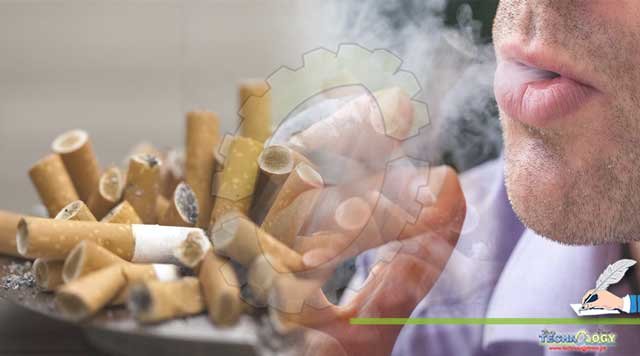The Framework Convention Alliance, an alliance of 300 organizations in 100, gave the Dirty Ashtray and Orchid awards to countries obstructing or promoting effective measures during the negotiations for World Health Organization’s Framework Convention on Tobacco Control (FCTC) and subsequent meetings ‘Conference of Parties’ (COP). The tradition of giving these two contrasting awards is now nearly two-decade old.

By Daud Malik
FCA’s awards became a center of keen interest as and when countries met to discuss tobacco control. It became a regular feature of the Conference of Parties. Since 2000, these awards have been regularly distributed.
A reason is also given why the country, individual, or an organization has been given the Orchid or the Dirty Ashtray award. Any country that was thought to being obstructive to the cause of tobacco control, the covenants of FCTC or even a thought that was not aligned to the thinking of the civil society, was given a ‘Dirty Ashtray Award’.
If one looks at the Ashtray Awards over the last two decades on the Framework Convention Alliance website (FCTC.org), it is evident that no country has been spared, including the United States, Japan, and Germany. In May 2001, the United States got the Ashtray Award for “making interventions seeking to weaken provisions on tax and price policies, ‘light’ and ‘low’ branding and packaging and labeling”. In 2008, China was censured for “attempting to make a mockery of Article 11 guidelines including preferring beautiful cigarette packages over the health of its citizens”. In the same year Japan was called out for “a pattern of behaviour that is clearly aimed at undermining a strong protocol”.
One wonders if today the tobacco control organizations and members of FCA are critically observing the reports and positions taken by World Health organization (WHO) towing the recommendations of Bloomberg funded organizations and Bloomberg itself and think that WHO for these actions deserves the Dirty Ashtray Award. Consider the following two reasons:
The first reason is the WHO’s report on tobacco pandemic issued in July 2021. WHO said it has for the first time included data on electronic nicotine delivery systems (ENDS). The report maintains ENDS are addictive and not without harm and called for strictly regulating them “for maximum protection of public health”. The report also claimed that children and adolescents who use ENDS can double their risk of smoking cigarettes.
However, INNCO says the WHO report was paid for by Bloomberg Philanthropies and partially written by people outside the WHO who belong to organizations funded by Mr Bloomberg who runs a crusade against any form of Tobacco Harm Reduction.
Similarly, Lindsay Stroud writing for Inside Sources maintains, “The WHO has officially launched a war on tobacco harm reduction, but this report is not really a report, and rather, reads like a Bloomberg-penned memo endorsing his nanny state policy ‘solutions’ and applying them to the world.”
The second reason for landing the award is missing the historic opportunity for ending combustible smoking. As Dr Derek Yach has maintained that the exceptional growth of next generation devices offers the WHO a real opportunity to tackle combustible consumption once and for all. He reminded WHO that over 100 million ex-smokers use reduced risk products and it should be taking advantage of massive investment in the sector by encouraging governments to provide an incentivised regulatory framework to enable greater expansion.
However, WHO has ignored the opportunity.
The review of the reports provided by the ‘Expert Committees’ on novel and emerging tobacco products has been put off to COP 10, which will be held in 2023.
According to the provisional agenda for the COP9, its bureau decided that the reports prepared by WHO (Comprehensive report on research and evidence on novel and emerging tobacco products, contained in document FCTC/COP/9/9) and by the Convention Secretariat (Challenges posed by and classification of novel and emerging tobacco products, contained in document FCTC/COP/9/10), should be presented for information and that related substantive discussions should be deferred to COP10. Member states were given dirty ashtray awards for far less and this lack of transparency by WHO and FCTC Secretariat should surely lead to a similar Dirty Ashtray Award.
However, one can argue that the tradition is that only one reason is given for bestowing the Dirty Ashtray Award.
In that case one would like to recall the joint Dirty Ashtray Award for the UN and WHO on 21 February 2003. They got the award for “forcing us to breathe smoky air while debating a tobacco control treaty.”
Today this award can be repeated with a slightly altered reason. WHO can be given the Dirty Ashtray for “forcing everyone, including smokers, to breathe smoky air while ignoring/forgetting novel and emerging less harmful products”.